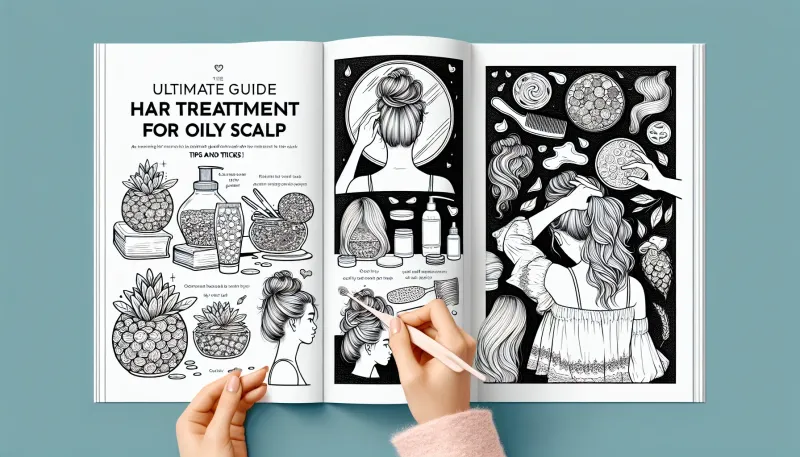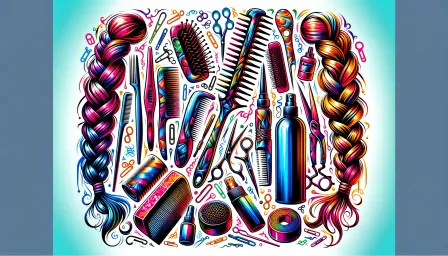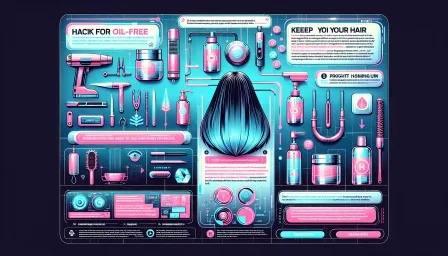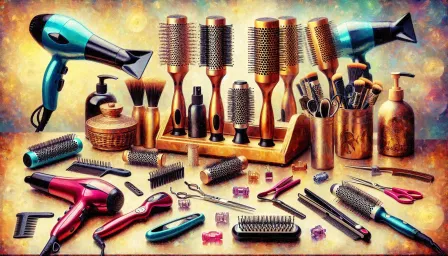The Ultimate Guide to Hair Treatment for Oily Scalp: Tips and Tricks

Discover effective tips and tricks for hair treatment for oily scalp. Learn how to manage and treat your oily scalp with our comprehensive guide.
Introduction
An oily scalp can be a persistent and frustrating problem for many people. Excessive oil production can lead to various issues, including greasy hair, dandruff, and even scalp acne. In this ultimate guide, we will delve into the causes of an oily scalp and provide you with comprehensive hair treatment solutions to help you manage and control the oiliness effectively.
Understanding the Causes of an Oily Scalp
Before diving into the treatment options, it is essential to understand the underlying causes of an oily scalp. Oiliness results from the overproduction of sebum by the sebaceous glands located on the scalp. Several factors can contribute to this overproduction:
- Genetics: Your genes play a significant role in determining your scalp's oiliness. If oily hair runs in your family, you are more likely to experience it too.
- Hormonal Changes: Hormonal fluctuations during puberty, pregnancy, menstrual cycles, or due to conditions like polycystic ovary syndrome (PCOS) can increase sebum production.
- Diet: A diet high in greasy foods, sugars, and dairy products may exacerbate oil production.
- Incorrect Hair Care Products: Using products not designed for your hair type, particularly those high in oils or silicones, can increase scalp oiliness.
- Overwashing: Washing your hair too frequently can strip it of natural oils, causing your scalp to produce even more oil to compensate.
Effective Hair Treatment for Oily Scalp
Select the Right Shampoo
Using the right shampoo is crucial for managing an oily scalp. Look for shampoos specifically formulated for oily hair or scalp. These products typically contain ingredients like:
- Salicylic Acid: Helps remove excess oil and exfoliate the scalp.
- Zinc Pyrithione: Reduces dandruff and controls oil production.
- Tea Tree Oil: Possesses antibacterial properties and helps reduce oiliness.
- Charcoal: Absorbs excess oil and detoxifies the scalp.
Condition Wisely
Conditioning is essential, but it is important to choose a lightweight conditioner and apply it only to the ends of the hair. Avoid getting conditioner on the scalp, which can add to the oiliness. Opt for products labeled "oil-free" or "non-comedogenic."
Adjust Your Washing Routine
Frequent washing can lead to an endless cycle of oil production. Instead, try to wash your hair every other day or even less frequently, if possible. On non-wash days, you can use a dry shampoo to absorb excess oil and maintain freshness.
Incorporate Scalp Exfoliation
Just like facial skin, your scalp can benefit from exfoliation. Use a gentle scalp scrub to remove dead skin cells and excess oil buildup. Look for products containing ingredients like salicylic acid or glycolic acid for effective exfoliation.
Use Natural Remedies
Several natural remedies can help manage an oily scalp:
- Apple Cider Vinegar: Dilute with water and use as a rinse to balance scalp pH and reduce oiliness.
- Lemon Juice: The acidic properties help control oil production. Mix with water and apply to the scalp for a refreshing treatment.
- Aloe Vera: Soothes the scalp and reduces excess oil. Apply pure aloe vera gel to your scalp and leave it on for 15-20 minutes before rinsing.
Preventive Tips to Manage Oiliness
Watch Your Diet
Your diet can influence your scalp's oil production. Incorporate foods rich in omega-3 fatty acids, vitamins, and minerals to maintain a healthy scalp. Avoid excessive consumption of greasy and sugary foods.
Avoid Overbrushing
Brushing your hair too often can stimulate the sebaceous glands to produce more oil. Brush your hair gently and only when necessary to distribute natural oils without causing overproduction.
Mind Your Hairstyling Products
Certain hairstyling products like heavy gels, mousses, and waxes can weigh down your hair and contribute to oiliness. Opt for lightweight, oil-free products to style your hair without adding excess grease.
Conclusion
Managing an oily scalp requires a balanced approach that combines the right hair care products, proper washing routines, and preventive measures. By understanding the causes and implementing these hair treatment tips, you can achieve a healthier scalp and more manageable hair. Remember, consistency is key, and with the proper care, you can keep excessive oil at bay while maintaining the overall health of your hair and scalp.



























